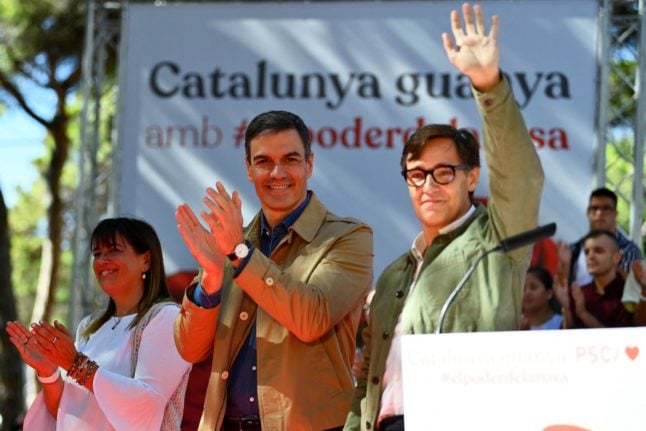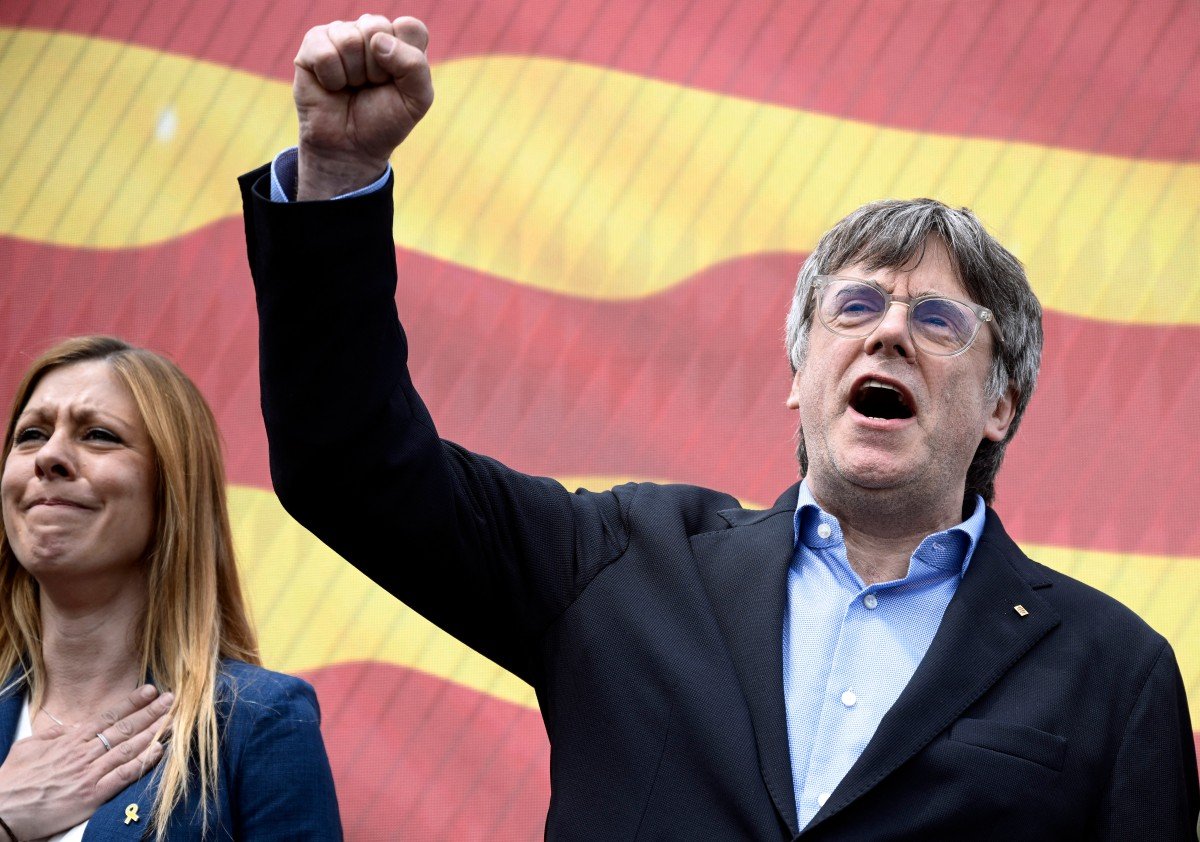A Madrid court said Wednesday it had opened an investigation into Begoña Gómez for suspected influence peddling and corruption in response to a complaint by anti-corruption pressure group Manos Limpias (Clean Hands), whose leader is linked to the far right.
The group, which has presented a litany of unsuccessful lawsuits against politicians in the past, said in a statement on Wednesday that it had based its complaint on media reports and could not vouch for their veracity.
“If they are not true, it is those who published them” who will have to “take responsibility”, the group wrote in a statement.
The public prosecutors office said it has requested “the annulment of the proceedings” opened by a Madrid court and “the closure of the case”.
READ ALSO: Who is Begoña Gómez? Spanish PM’s partner thrust into spotlight
While the court did not give details of the case, online news site El Confidencial said it was related to her ties to several private companies that received government funding or won public contracts.
It said she had met twice with Javier Hidalgo, the CEO of Spanish tourism group Globalia which owns Air Europa, when the carrier was in talks with the government to secure a huge bailout after it was badly hit by plunging air traffic during the Covid-19 crisis.
At the time, Gómez was running IE Africa Center, a foundation linked to Madrid’s Instituto de Empresa (IE) business school, which signed a sponsorship agreement with Globalia in 2020. Gómez left the post in 2022.
Investigators are also looking into two letters of support Gómez allegedly provided for a joint venture bidding for a public contract, El Confidencial said.
Sánchez, in office since 2018, dismissed the accusations against his wife, saying in a letter posted on X on Wednesday that they were part of a campaign of “harassment” waged by “media heavily influenced by the right and far right” and supported by the conservative opposition.
The founder of Manos Limpias, Miguel Bernad, is the former leader of a small far-right group, Frente Nacional.
He was sentenced to four years in prison in 2021 for involvement in an extortion ring, before finally being acquitted on appeal due to lack of evidence.
READ ALSO: What happens and who takes over if Spain’s Prime Minister resigns?




 Please whitelist us to continue reading.
Please whitelist us to continue reading.
Member comments